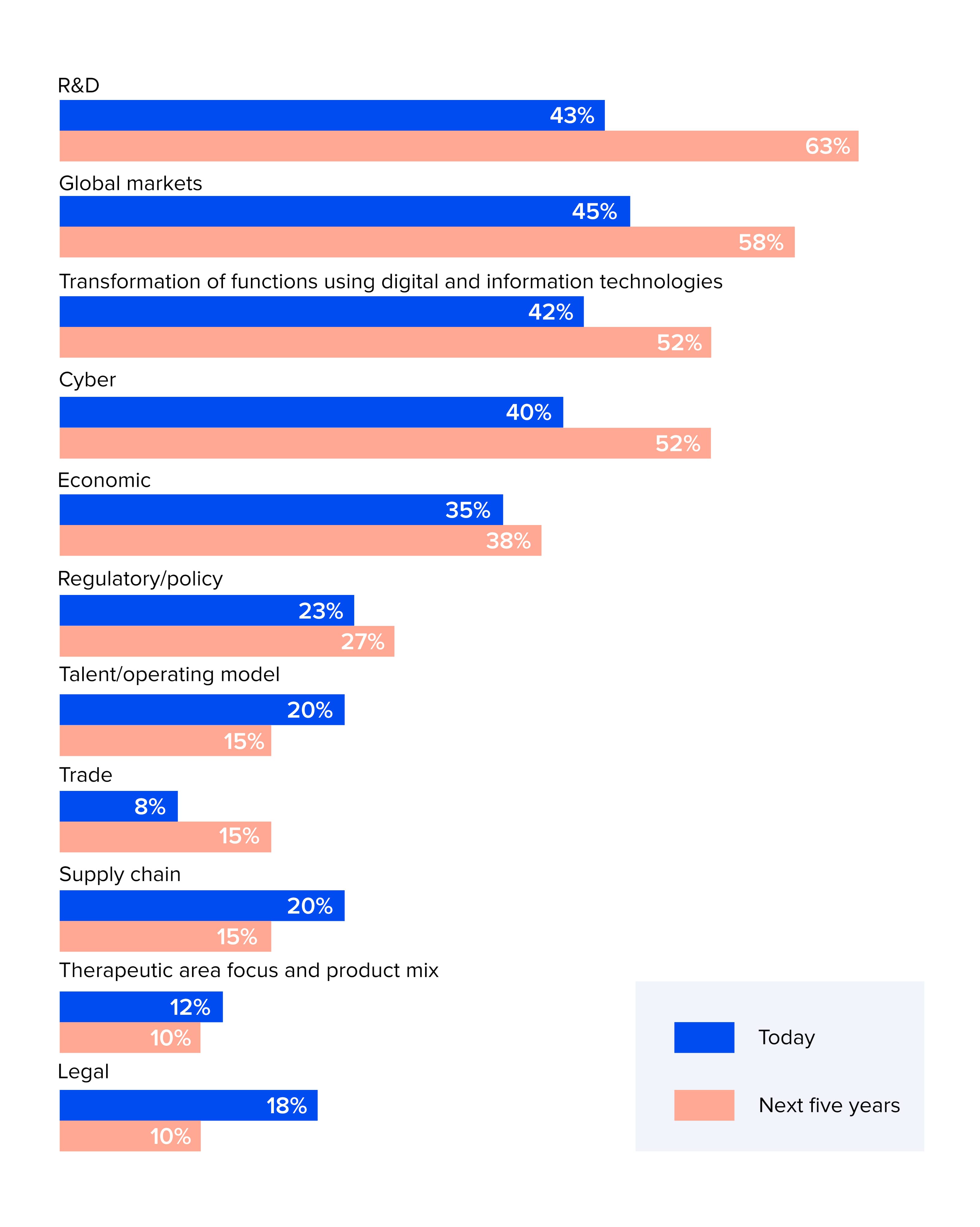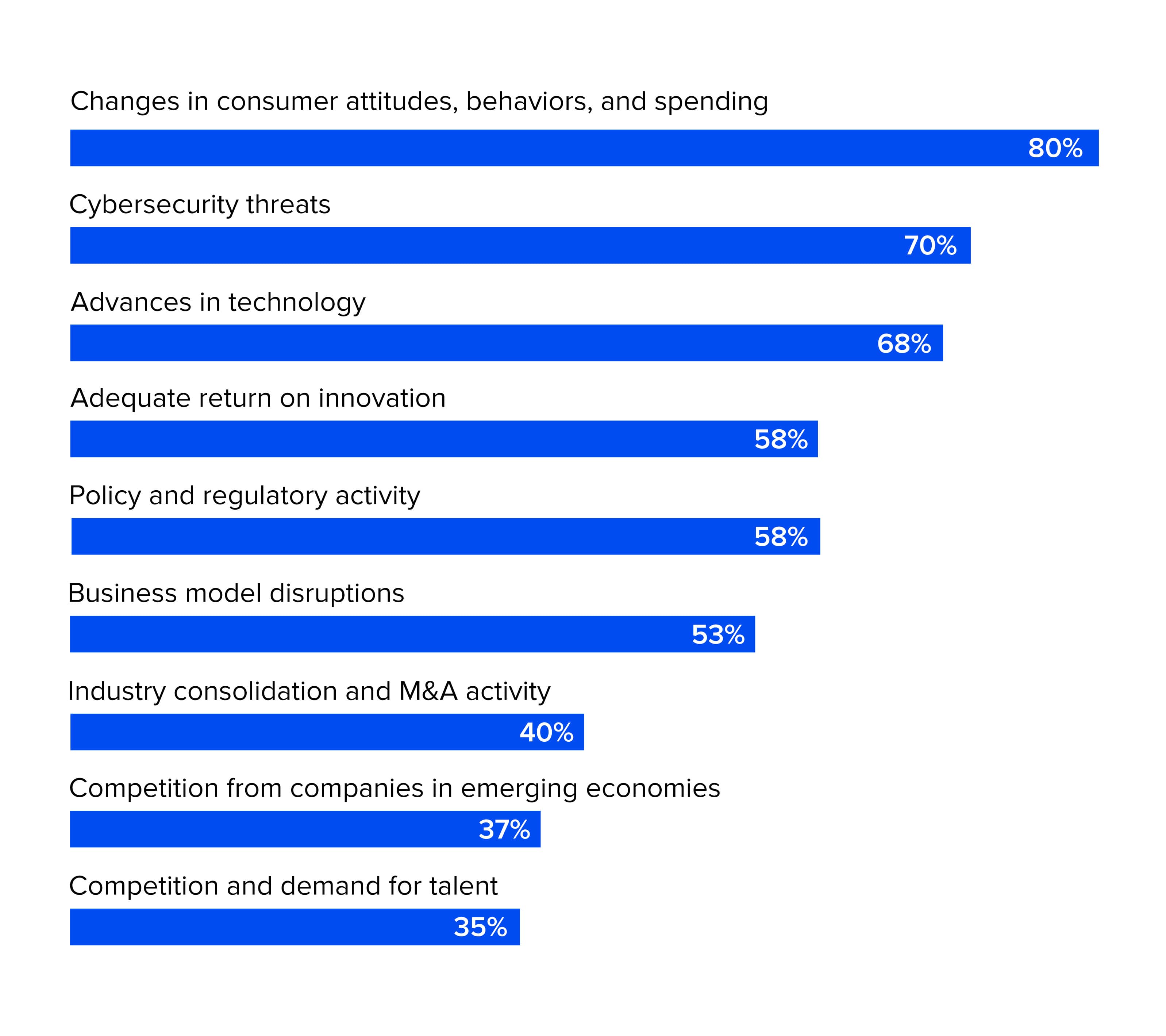Pharmaceutical companies have played a crucial role in the delivery of modern healthcare since the very first drugs were discovered, enabling the effects of debilitating, life-threatening diseases to be managed. Never more has the importance of pharma been felt than this past year, with the race to develop a COVID-19 vaccine and therapeutic medicines to help treat its symptoms. As digitisation reshapes every facet of the industry, pharmaceutical players need to adapt their approach if they’re to meet the shifting expectations of consumers. So, pharma leaders are now shifting their focus towards pharmaceutical information technology solutions to help them adapt to the changing market demands.
“Data-driven approaches have the potential to create value across manufacturing, the supply chain, and the entire healthcare ecosystem.” - Deloitte - 2020 Global life sciences outlook
According to a recent Deloitte trends report, digital transformation is the biggest priority for biopharma companies right now. But, perhaps surprisingly, the biggest sea change for the life sciences is a steer towards nonpharmacological intervention. A prevention, rather than cure methodology. Cutting-edge technologies are driving a proactive approach to medicine which harnesses cellular science and gene therapy to identify diseases and stop them in their tracks, before they’ve taken hold. Diseases which include cancer, cystic fibrosis and heart disease—as well as a host of other hereditary conditions.
According to Deloitte’s findings, the five key focuses for pharma companies over the next ten years are:
- Curative therapies: In its current guise, the pharmaceutical sector has adopted a “firefighter” role; focusing on treating the symptoms of disease, rather than curing the cause. Developing treatments that eliminate disease demands that pharmaceutical companies adapt and take on new capabilities; since reducing disease means reducing peoples’ reliance on traditional prescription medicines.
- Treatment customisation: Personalisation yielded by data insights is redefining industries the world over. In terms of pharma, data has the potential to customise patient prescriptions, reduce “trial and error” and, ultimately, provide better cost and health outcomes all round.
- Digital therapeutics: Digital interventions aimed at changing negative, disease-causing behaviours could reduce our need for medications—instead, promoting healthier lifestyles and better individual awareness of the negative impacts of certain actions.
- Prevention and early detection: Continued research and development into wellness, alongside robust and effective vaccination programs—particularly relevant right now—will prevent many diseases which, in turn, means certain treatments will become obsolete.
- Nonpharmacological interventions: Robotics, nanotech and tissue engineering in conjunction with precision imaging technologies will also play a crucial role in reducing our need for traditional pharmaceutical solutions.

Source: Deloitte LS C-Suite Survey 2020
So, what are the key pharmaceutical information technology trends underpinning these shifts? Let’s take a look.
1. AI and Machine Learning
AI’s potential for the biotech space is vast. Of particular significance is its capacity for rapid discovery; both of pathogens themselves and of their potential treatments. Using AI for discovery is significantly more time and cost effective than using human lab technicians, which are limited in terms of speed and accuracy.
A 2019 survey by Verdict AI asked pharma executives how important they felt AI and Machine Learning technologies would be in healthcare innovation. Over 70% of them answered; “very important”. Meanwhile, another report by Narrative Science saw 61% of respondents citing the need to identify things which they believe would otherwise have been missed as the key driver for investing in AI-powered innovations.
So, it’s clear that without the speed, efficiency and automation capabilities that AI offers, the pharmaceutical sector would eventually lose the race to identify and treat diseases which have proliferated in the modern world.
2. Digital Therapeutics
In a recent interview with McKinsey, Bozidar Jovicevic—head of digital therapeutics at Sanofi—defines this term as “nonpharmacological, tech-focused solutions that work as a stand-alone therapy or are combined with drugs to improve patient outcomes—and, of course, drive business impact”.
The current healthcare system is attuned to providing remedial medical care which, according to the WHO, delivers 20% of the population’s health outcomes. But behavioral change—that is, the avoidance of administering medicines altogether—accounts for up to 30%.
In targeting behaviour, around USD $3.4 trillion could be spared each year from the treatment of chronic diseases. This behavioural approach includes wearables that monitor activity and sleep levels, complementary digital therapies such as apps which focus on reducing stress and anxiety, and remote disease management/patient monitoring.
But, if we’re taking drugs out of the equation—or at least minimising them—where does that leave Big Pharma? Well, industry innovators are considering partnership models whereby pharmaceutical companies, which already have a massive reach, team up with agile tech startups to deliver a comprehensive healthcare service that looks at prevention, rather than just cure.
It’s predicted that, before too long, we’ll see medical professionals prescribing digital therapeutics, either as a standalone therapy or in combination with traditional pharmaceutical medicines.
3. Personalising Treatments with Advanced Analytics
Consumers across all settings are now used to receiving services that are tailored specifically to their needs, and this notion will revolutionise how medical care is delivered in the future.
This isn’t a new concept in biopharma but, because of the sensitivity of patient data and the necessary red tape governing its use, it’s one that hasn’t yet been realised by medical institutions. What this has meant for pharmaceutical firms is massive investments in drugs which may not make it through trials—without a clear view of who the ideal patient is if they do make it to market. This, ultimately, results in cost-inefficient and health-detrimental outcomes.
Advanced analytics and Natural Language Processing (NLP) could help the healthcare industry make sense of the masses of messy patient data that currently exists in medical databases; spotting patterns to work out how different segments of the population respond to different therapies. This data-driven approach would enable the healthcare sector to do away with the one-size-fits-all model for treating chronic disease and target effective pharmaceuticals at the most appropriate patients, for significantly better health and business outcomes.
Summary
This past year, it’s become more apparent than ever that the landscape of human health can and will change rapidly, necessitating an agile response from those delivering our care. The previous rigid, often bureaucratic, model isn’t innovative enough to maintain the current healthcare standard, let alone improve it.
A more progressive approach is needed and innovative pharmaceutical information technology can help deliver this. The challenge, then, is how to protect patient data from ‘bad actors’, while making more of it available to those who would use it for the greater good.
See how ELEKS has helped clients in the healthcare sector revolutionise caregiving. Get in touch today.
Related Insights


















